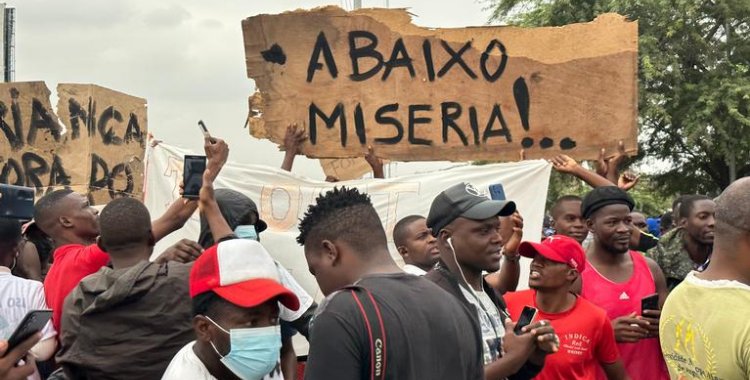In a letter signed by the three rapporteurs, dated 29 August and addressed to President João Lourenço, they argue that "many provisions in the proposed law [on NGOs] would be contrary to Angola's human rights and international obligations, including the right to freedom of association , the right to freedom of opinion and expression, and the right to non-discrimination".
And, if the bill is approved in its current form, it "imposes excessively rigid regulation and grants unwarranted government control over the operations of non-governmental organizations (NGOs)."
"It would significantly limit the independence and autonomy of civil society organizations in Angola, contrary to the right of associations to function freely and without undue government interference, they add."
"We also note that there appears to have been a lack of genuine consultation with NGOs in drafting the provisions of the bill", they further state.
The 13-page document, to which Lusa had access, was signed by Clement Nyaletsossi Voule, rapporteur on the rights to freedom of peaceful assembly and association, Mary Lawlor, rapporteur on the situation of human rights defenders, and Fionnuala Ní Aoláin, rapporteur on the promotion and protection of human rights and fundamental freedoms in the fight against terrorism.
The letter was published by Portal Vozes, which deals with news of interest to the Portuguese-speaking community.
The UN rapporteurs appeal to João Lourenço not to approve the diploma and to develop a new law, consulting "widely all sectors of civil society" in this regard.
According to the rapporteurs, the new law must guarantee "an environment conducive to civil society and in accordance with Angola's requirements and obligations and with the best international practices in matters of human rights".
They also consider that "enabling and protecting the right to freedom of association is fundamental to providing an effective response to the multiple challenges that Angola faces".
Furthermore, "guaranteeing this right is fundamental for civil society to contribute to the pursuit of the SDGs [sustainable development objectives] and is an essential component of societies in democracy, allowing them to respond to the needs, complaints, rights and desires of their populations".
The signatories of the letter also remind the Government that "States have the primary responsibility and duty to protect, promote and realize all human rights and fundamental freedoms, taking the necessary measures to create social, economic, political and other conditions".
The rapporteurs also encourage Parliament "to initiate broad and inclusive processes of dialogue and meaningful consultation with Angolan civil society and other interested parties, to better understand the role of the NGO, the nature of its work, the diversity of the sector and its needs and concerns."
Because this "will enable the development of new, less restrictive, more inclusive measures and legislation that promotes the critical work of NGOs and ensures that citizens and beneficiaries' rights are protected, in accordance with constitutional principles and international law obligations in matters of human rights".
The National Assembly generally approved, on May 25th, the proposed law on the Statute of Non-Governmental Organizations.
The bill was approved with 105 votes in favor from the Popular Movement for the Liberation of Angola (MPLA), 69 votes against from the National Union for the Total Independence of Angola (UNITA) and two abstentions from the Social Renewal Party (PRS) coalition. and National Front for the Liberation of Angola (FNLA).
On May 30, the organizations reacted in a press conference and drew the attention of the national and international community "to the maneuver of the executive branch in passing a law that bears or maintains some similarity with presidential decree no. 74/15, of March 24th, NGO Regulation, which was considered unconstitutional by the Constitutional Court".
On July 5th, at least 100 civil society organizations around the world signed a declaration against the proposed law, considering that NGOs will no longer "operate freely".







